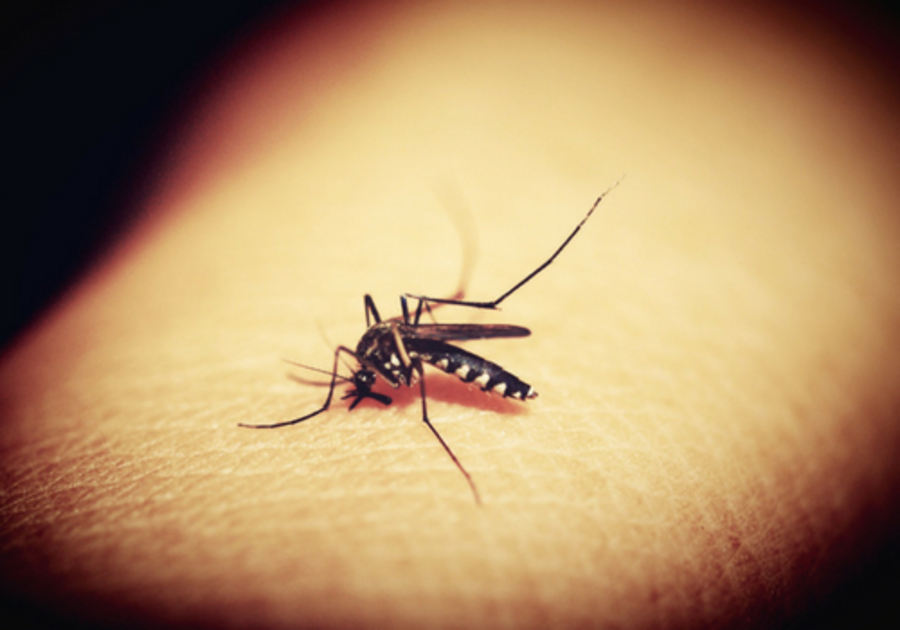I am afflicted with what many call "sweet blood" because I am so prone to mosquito bites. (It's a thing, really!) I also have a pretty severe reaction to those bites, which means they are crazy itchy and last for weeks. My hubs hardly gets bitten at all. (It's so annoying.)
Not only are mosquito bites bothersome for me and my kids, but I worry about diseases they carry, like West Nile and Zika.
Needless to say, I am always on the lookout for ways to stop the itch, or better yet, STOP THE BITES. I did some research on the subject, and here's what I found:
Bug off!
Five easy ways to keep mosquitoes at bay:
1. Blow them away. Fans are a great deterrent for mosquitoes. Point the air flow toward the bottom half of your body, because mosquitoes fly low to avoid wind (hence, the 57 bites around my ankles right now).
2. Get rid of standing water. Once a week empty and scrub anything that contains standing water in your yard. The Centers for Disease Control notes that mosquitoes lay eggs near water, so you should be wary of buckets, planters, toys, pools, birdbaths, flowerpots, or trash containers that contain uncovered standing water and empty them regularly.
3. Mosquito repellent. Use an Environmental Protection Agency-registered insect repellent with active ingredients like DEET, Picaridin, and oil of lemon eucalyptus (see the EPA's complete list.) Make sure to read directions as some repellents aren't safe for kids. Oil of lemon eucalyptus products, for instance, should not be used on children under the age of three.
4. Wear the right clothes. OK, we know long sleeves and pants work MOST of the time, but when it's 100 degrees outside, who wants to wear long sleeves and long pants. NEXT! However, one thing I can do: wear light colored clothes! Turns out mosquitoes look for colors that contrast with the horizon as they fly close to the ground. That might be one reason I get a lot of bites -- I always wear black!
5. Replace Outdoor Lights. Those yellow "Bug Lights" attract fewer mosquitoes than ordinary lights to your backyard.
Products That Aren't Worth the Money
Some popular products claim to repel mosquitoes but really aren't that effective, according to experts. Here are two of the most common I see marketed as mosquito repellents that experts say don't bother with:
Ultrasonic devices. They don't work effectively enough to get all of the mosquitoes, so they say, so best to have a backup plan. The America Mosquito Control Association writes: "At least 10 studies in the past 15 years have unanimously denounced ultrasonic devices as having no repellency value whatsoever." Save your money.
Citronella candles. Most say nope, as the scent or smoke must get between you and the mosquito, and that is unlikely. Scientists seem to have the final say here. Multiple studies, including this one published by the National Institutes of Health, say citronella isn't nearly as effective as repellant.
Got bit. Now what?
If you or your children do get bit by a mosquito, there's Calamine lotion, of course. Medical News Today also offers these three tips:
1. Resist the urge to scratch. I know, I know... easier said than done! However, try tapping on the bite or applying pressure instead. Scratching can lead to infection.
2. Make a paste. Reduce irritation by applying a paste made with water and apply to each bite. Or add baking soda to a cool bath for lots of bites.
3. Apply apple cider vinegar. Long considered a natural remedy for bug bites, you can apply directly or add 2 to 3 cups to a bath.
Dangerous bites
Although most mosquito bites only cause discomfort, it just takes one bad mosquito bite to cause a serious illness. That's why you don't want to ignore post-bite symptoms like a fever, body aches, vomiting, or a rash. They could be a sign of West Nile virus or Zika virus.
See a doctor right away if you're concerned about the potential for a mosquito-borne illness (and if you're pregnant or there's a potential you could become pregnant, make sure to check the CDC's map for the latest on where Zika is located).
Mosquitoes are certainly a summer pain, but with a little planning and care, you can keep these nasty pests from feasting on you and your family!



